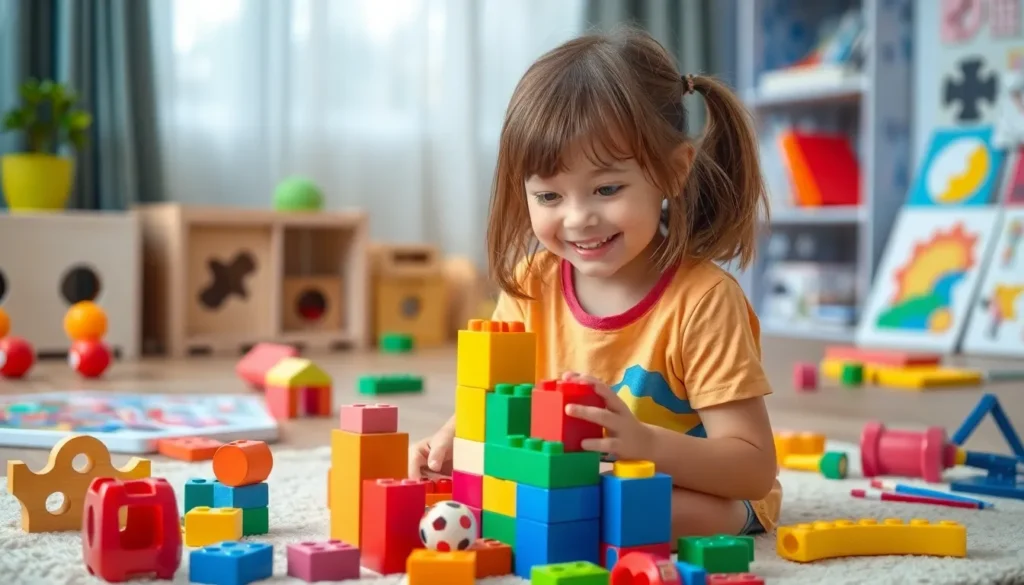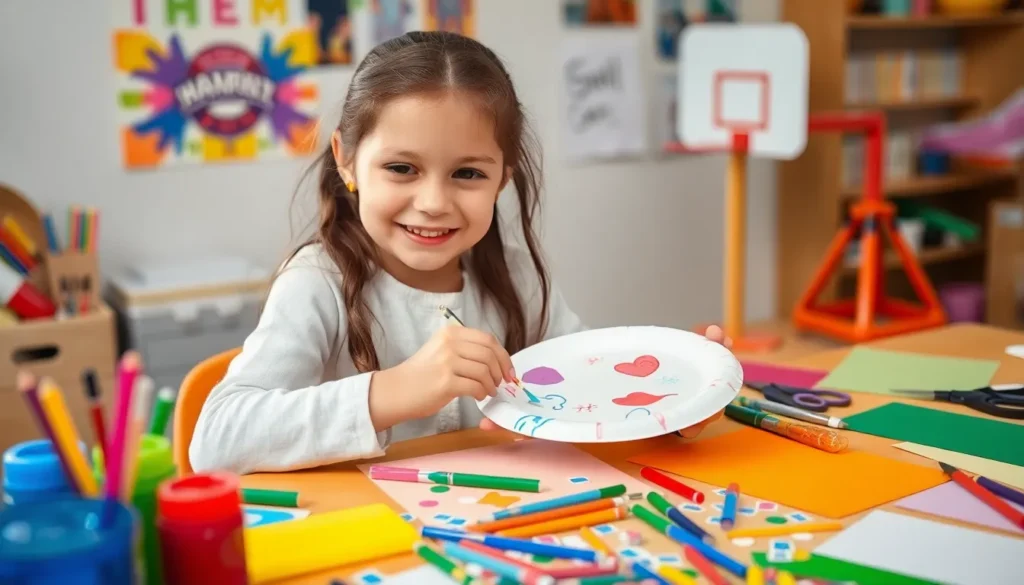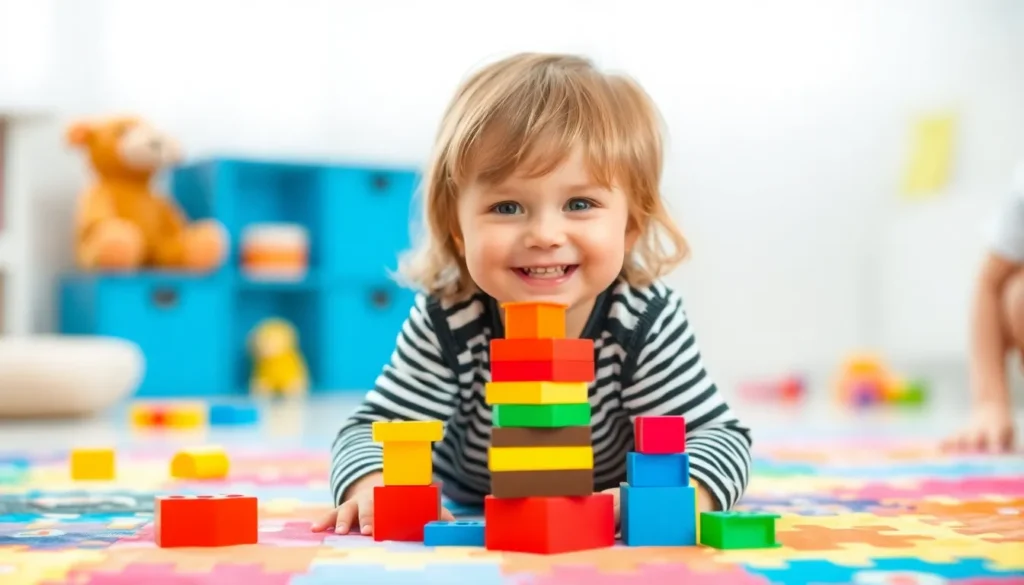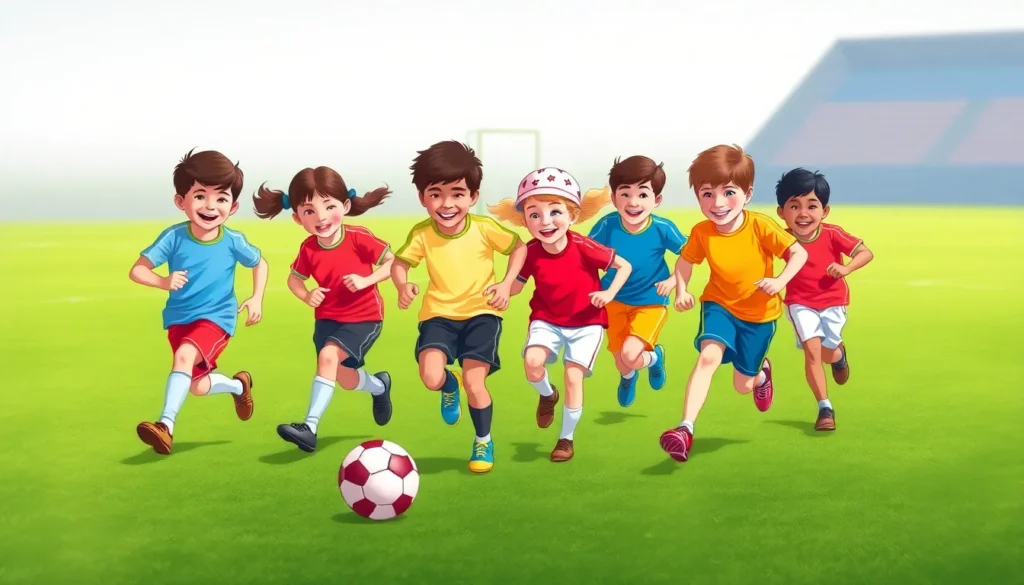Finding the right sport for kids with autism can feel like searching for a needle in a haystack. But fear not! There’s a whole world of activities that can boost confidence, improve social skills, and provide a healthy outlet for energy. Imagine a place where every child can run, jump, and laugh without the pressure of competition—sounds like a dream, right?
Table of Contents
ToggleUnderstanding Autism and Its Impact on Children
Autism Spectrum Disorder (ASD) affects communication, behavior, and social interaction. Approximately 1 in 44 children in the U.S. is diagnosed with ASD, highlighting a significant portion of the youth population. Symptoms often vary across individuals, creating a unique profile for each child.
Social skills and anxiety levels commonly pose challenges for children with autism. Difficulty in understanding social cues can lead to isolation and frustration. Engaging in sports provides a structured environment where children can develop these essential skills.
Physical activity benefits overall health, offering a way to channel energy productively. Exercise improves mood through the release of endorphins, which can alleviate anxiety. Regular physical activities also encourage routine, helping children feel secure.
Specialized sports programs aim to accommodate the needs of children with autism. Such programs often focus on teamwork, promoting interaction with peers. Activities like swimming, martial arts, and soccer offer opportunities to enhance physical fitness while fostering social connections.
Support from coaches and peers enhances the sports experience. Positive reinforcement and understanding from adults help build confidence. Structured settings minimize anxiety, allowing children to thrive and partake in enjoyable activities without undue pressure.
Consistent participation in sports can lead to improved social skills over time. As children learn to cooperate, communicate, and set goals, they grow more socially adept. Therefore, selecting appropriate sports is vital in facilitating a positive experience for children with autism.
Benefits of Sports for Kids with Autism
Engaging in sports offers numerous benefits for children with autism. These activities promote overall well-being and facilitate crucial developmental skills.
Physical Health Advantages
Physical activity enhances motor skills and improves overall fitness levels. Children with autism experience increased strength and stamina, which supports daily functioning. Regular participation in sports contributes to weight management, reducing risks associated with obesity. Cardiovascular health sees significant improvements, as active kids show better heart health and endurance. Additionally, sports foster coordination and balance, important life skills for all children. Maintaining physical health through sports can lead to more energetic days and better focus during other activities.
Social Skills Development
Participation in team sports creates a unique opportunity for social interaction. Children learn to communicate more effectively with peers and coaches, building essential social skills. Collaborative play encourages teamwork, teaching kids the importance of working together towards common goals. Through structured activities, kids gain skills in sharing, taking turns, and respecting others. They also learn to read social cues, which can enhance their interactions. Joining a sports team can create lasting friendships and reduce feelings of isolation, contributing to an overall sense of belonging.
Types of Sports Suitable for Kids with Autism
Finding the right type of sport can significantly benefit children with autism. Different sports offer unique opportunities for development and enjoyment.
Individual Sports
Individual sports provide a great avenue for kids with autism to thrive. Activities such as swimming, tennis, and martial arts allow for personal achievement at one’s own pace. Specific skills in these sports promote focus and self-discipline. Swimming, for instance, enhances coordination while also fostering a sense of calm. Tennis encourages hand-eye coordination and strategic thinking, beneficial for cognitive development. Martial arts instill discipline and respect, helping children develop self-confidence.
Team Sports
Team sports present additional socialization opportunities for children with autism. Sports like soccer, basketball, and baseball allow for teamwork and communication with peers. Participation in soccer helps them learn about collaboration and the importance of working towards a common goal. Basketball offers a chance to improve coordination and foster friendships through shared experiences. Baseball encourages taking turns and following rules, essential skills for social interaction. With the right support and encouragement, kids can thrive in these environments.
Creating an Inclusive Sports Environment
An inclusive sports environment fosters participation among children with autism. Factors such as comfort, understanding, and patience contribute to positive experiences.
Tips for Coaches and Instructors
Coaches and instructors play crucial roles in creating welcoming spaces. Emphasizing clear communication can help children understand instructions better. Structuring practices with consistency builds familiarity, reducing anxiety. Utilizing visual cues aids in comprehension and keeps children engaged. Celebrating small achievements promotes a sense of accomplishment and boosts confidence. Encouragement from coaches fosters connections and encourages teamwork.
Involvement of Parents and Caregivers
Parents and caregivers significantly enhance children’s sports experiences. Open communication with coaches ensures everyone is aligned on goals and strategies. Attending practices allows caregivers to observe challenges and successes, facilitating support. Being involved in discussions about routines helps create predictable environments. Encouragement at home reinforces skills learned during activities. Parent support networks can also provide valuable resources and shared experiences.
Finding the right sports for children with autism can significantly enhance their development and well-being. By focusing on activities that promote social interaction and physical health, parents and caregivers can help their children thrive. An inclusive environment where understanding and patience are prioritized creates opportunities for growth and connection.
With the right support from coaches and peers, children can build confidence and develop essential skills. Whether through individual sports or team activities, the key lies in fostering a positive experience that encourages participation and celebrates achievements. This journey not only benefits the children but also enriches the community as a whole.









